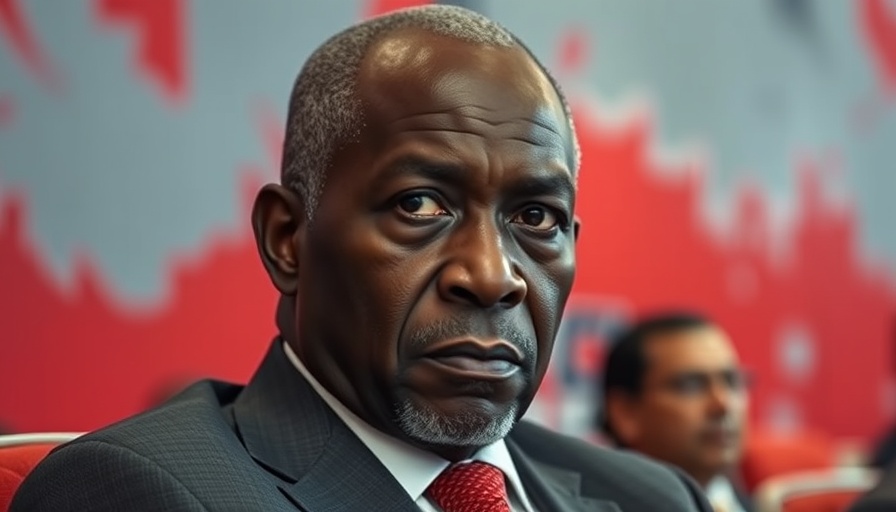
Uncertainty Looms Over the Central African Republic
The recent emergency hospitalization of Central African Republic (CAR) President Faustin-Archange Touadéra in Brussels has ignited concern among residents of Bangui, especially as the nation approaches a pivotal presidential election. Since being evacuated on June 21, the nation is grappling not only with anxiety over its leader's health but also with the potential ramifications of a political vacuum at such a critical juncture.
A Challenging Political Landscape
With upcoming elections in a few months, the pressure is mounting on the ruling government to maintain stability. This abrupt medical emergency has led to unease surrounding governance, as various factions may vie for power in Touadéra's absence. Political analysts are closely monitoring the situation, as the CAR experiences complex dynamics involving corruption, governance, and regional security.
The Implications of Presidential Absence
The emergency situation has thrown into question the continuity of governance in CAR, already marked by tensions over security and nationalist movements. Historically, an absent president often leads to challenges such as power struggles and civil unrest, particularly in regions where grievances against the government have been simmering. The CAR's citizens are now reflecting on the implications this may have for their democratic process, potentially fostering a climate ripe for manipulation by external interests.
Global Perspectives on Local Governance
As the nation stands at the brink of potential political upheaval, the involvement of external powers comes into focus. The Kremlin's interest as a significant player in CAR’s politics complicates the situation. This interest will likely dictate not just military presence, but the structural changes in governance aligning with larger global geopolitical aims. Upcoming developments around the Africa Corps could shift the balance of power in the region, forcing local leaders to navigate the turbulent waters created by foreign influence while addressing pressing local issues like poverty, unemployment, and economic instability.
Connection Between Health, Governance, and Stability
The implications of healthcare on effective governance cannot be overstated, especially considering Touadéra's abrupt evacuation for treatment. Reliable healthcare systems are paramount for promoting political stability as they build trust in governance. The CAR must prioritize education and healthcare in the face of pressing challenges to forestall further deterioration in its political landscape. This alignment is an essential step towards enhancing its resilience against corruption, promoting human rights, and empowering the youth—key trajectories for sustainable development.
Future Predictions For CAREconomy
Looking forward, CAR must harness its resources intelligently to avoid sinking into deeper societal troubles. Drastic changes are needed to revitalize the economy, which faces numerous challenges: low infrastructure development, high youth unemployment, and the necessity for decolonization of the economic framework. Emphasizing technological innovation, entrepreneurship, and digital transformation can facilitate an environment conducive to growth. By turning attention towards resilience and sustainability, CAR stakeholders can work together towards creating a future that mitigates crises in governance.
As the Central African Republic navigates this tumultuous period, the need for a collective sense of purpose becomes clear. Citizens, organizations, and political leaders alike must engage in dialogue, focusing on foundational changes that lead to lasting peace and governance. In a nation rich with potential, building a resilient and inclusive political and economic framework could pave the way toward a brighter future.
 Add Row
Add Row  Add
Add 




Write A Comment